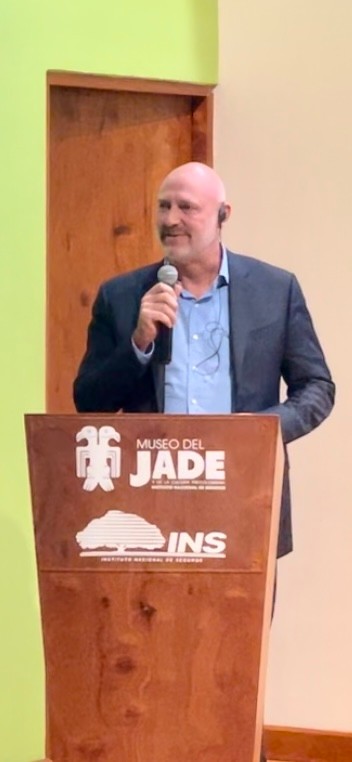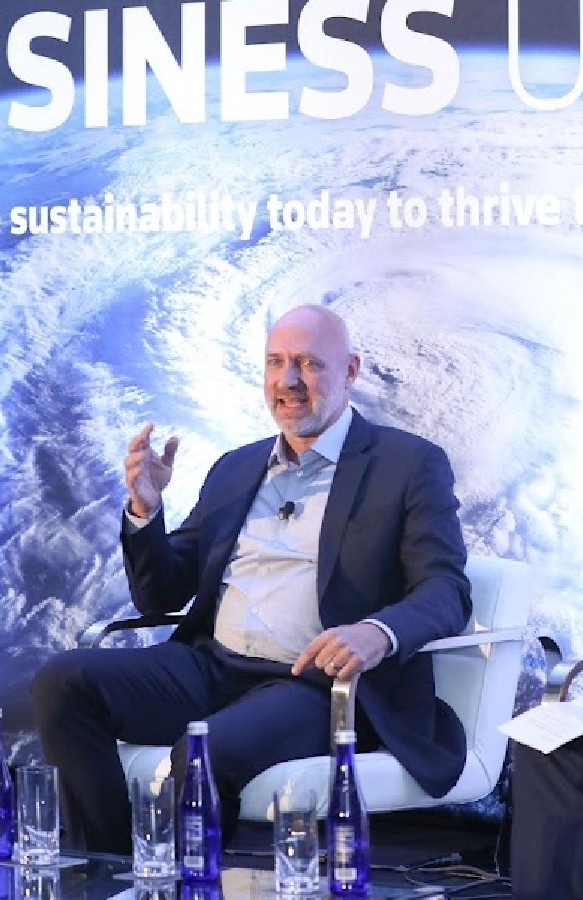We caught up with the brilliant and insightful Chad Spitler a few weeks ago and have shared our conversation below.
Hi Chad, thanks for joining us today. So, let’s start with trends – what are some of the largest or more impactful trends you are seeing in the industry?
One of the biggest trends in sustainable finance is climate reporting, as evidenced by the recent regulatory actions of the SEC and the State of California, both of which are being litigated. While I acknowledge the importance of reporting, I have concerns that the focus on regulation and reporting is preventing us from getting to the point of action. The old saying “you can’t manage what you don’t measure” applies, but if we continue to take so much time arguing over the measurement, we aren’t getting to the point of actually taking action to reduce our emissions.

Great, appreciate you sharing that with us. Before we ask you to share more of your insights, can you take a moment to introduce yourself and how you got to where you are today to our readers.
My background is in natural resource economics and economic anthropology. I started in the field of sustainable finance by assisting primarily native communities in building their economies in culturally aligned ways, such as through eco-tourism and establishing co-ops selling indigenous crafts. I moved into the world of institutional investing and developed analytical models to evaluate sustainability from a financial perspective, and applied that analysis to product development and investment stewardship for the world’s largest asset manager, BlackRock. This provided a unique lens into how money flows through the capital markets globally, and I identified opportunities at different decision points throughout the flow of capital to integrate sustainability into those decisions. Hence, the company I founded, Third Economy, has services oriented to each of those decision points, so that investment decision making incorporates sustainability into every decision, just as risk and performance are incorporated. We’re addressing the question or problem of understanding how can sustainability align with making money, and how can investing solve some of the world’s most pressing environmental and social problems.
How about pivoting – can you share the story of a time you’ve had to pivot?
One of the biggest pivots I have had to make as the CEO of Third Economy is regarding our proprietary sustainable finance model, VIA3. I originally built the model to assess the sustainability of mutual funds and ETF’s, with the intent that we would sell that assessment to potential investors in those funds. However, despite the high level of interest in the assessment, we found that it was incredibly expensive to produce, and, there was not a market willing to pay the high price we needed to charge for the research. So we pivoted. We now apply the model in our advisory practice to help investment managers develop sustainable mutual funds and ETF’s.
Let’s talk about resilience next – do you have a story you can share with us?
My story of resilience originates from the COVID pandemic. In 2019 I quit my job and decided to found my own company. Over the course of the first year in business we achieved profitability, and 2020 was looking even stronger. And then COVID hit. My business development pipeline dried up, as did our access to capital. I feared bankruptcy, and lamented the fact that I unknowingly quit my job right before a pandemic. But every morning I woke up and hit the ground running, consistently contacting prospective clients and investors, and listening to their needs as they too surfed this unimaginable scenario. I ultimately concluded that despite the delays caused by the pandemic, the market for our services remained strong, and it was only a matter of time and persistence that led us to further profitability and growth. I’m glad I stayed the course and did not give up!
Contact Info:
- Website: thirdeconomy.com
- Linkedin: https://www.linkedin.com/company/18962805/admin/feed/posts/
Image Credits
NA


